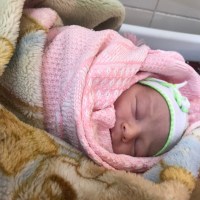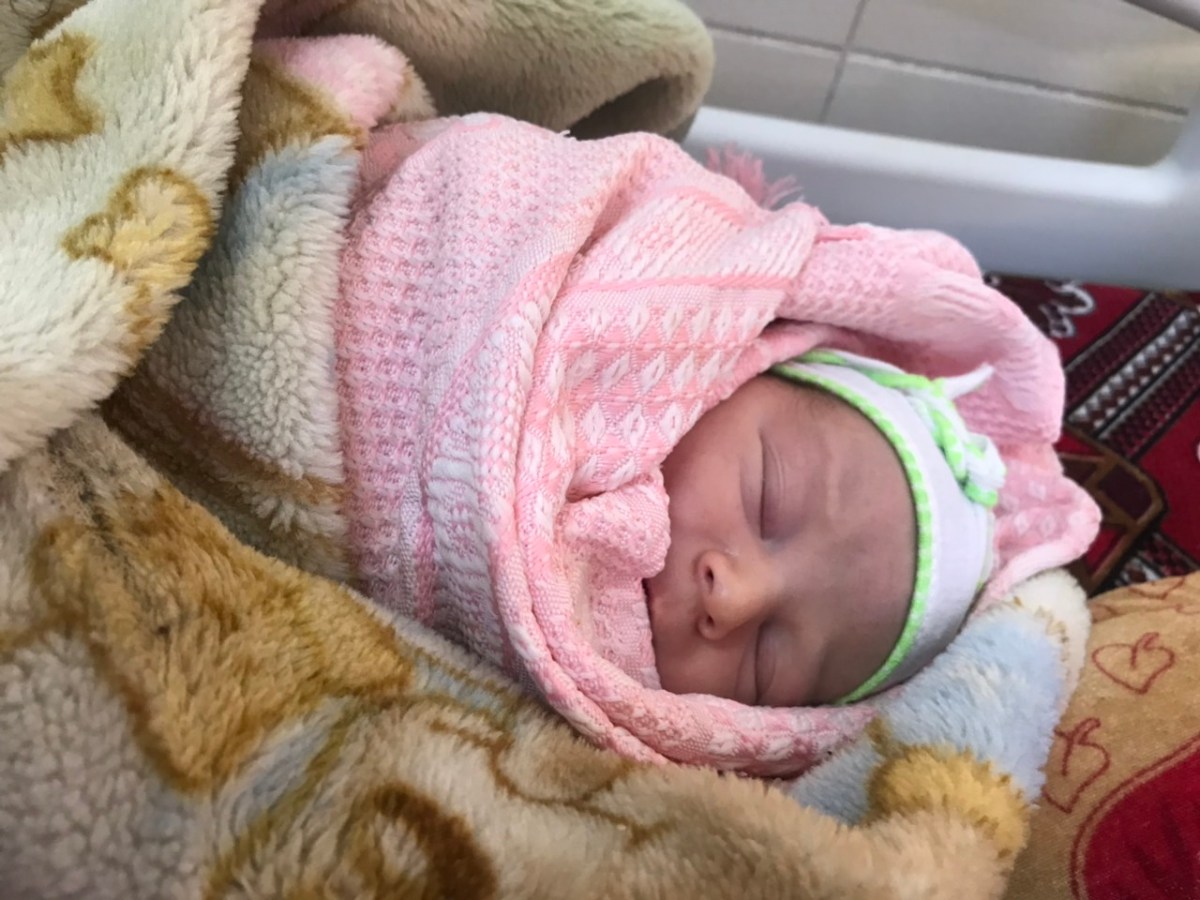When it’s time for my baby to be born, will there be a doctor to take care of them?
This is one of the biggest questions facing families after war when the time comes to go home. What if all the hospitals are destroyed? What if all the doctors have fled? Often the answer can mean the difference between years more of displacement or a jump start on a new future.
When women like Asmaa, whose baby is pictured above, sleeping peacefully just a few hours after being born, don’t have to worry if moving home will mean they are putting the lives of their families and unborn babies at risk, it makes taking the step of moving home possible.
Prenatal Care
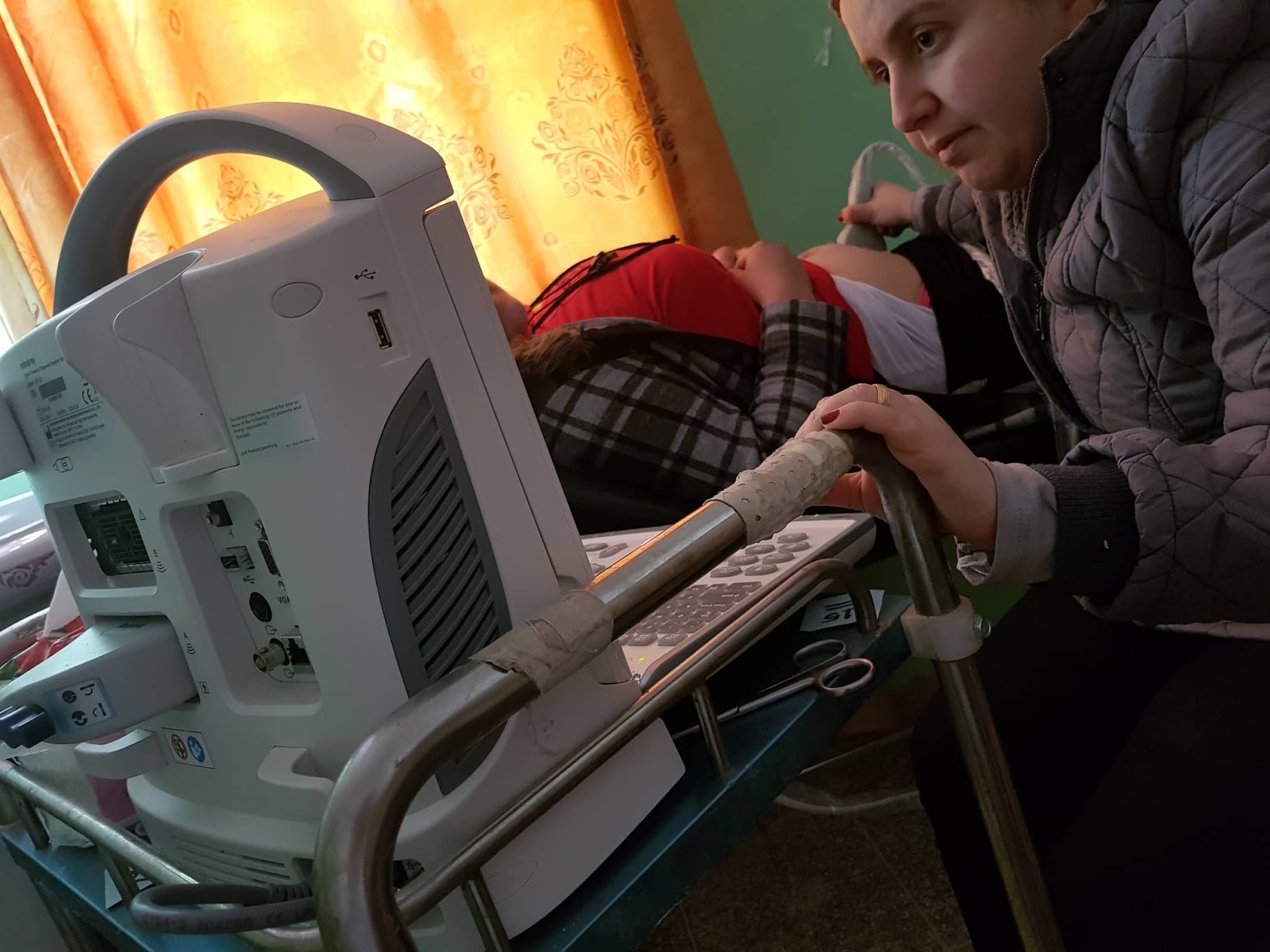
When you give, you ensure that ultrasound professionals are available to check on growing babies. You give doctors the ability to refer women to specialists in larger cities. And you let parents prepare a little, when the ultrasound shows not one baby, but two (pictured lower, right).
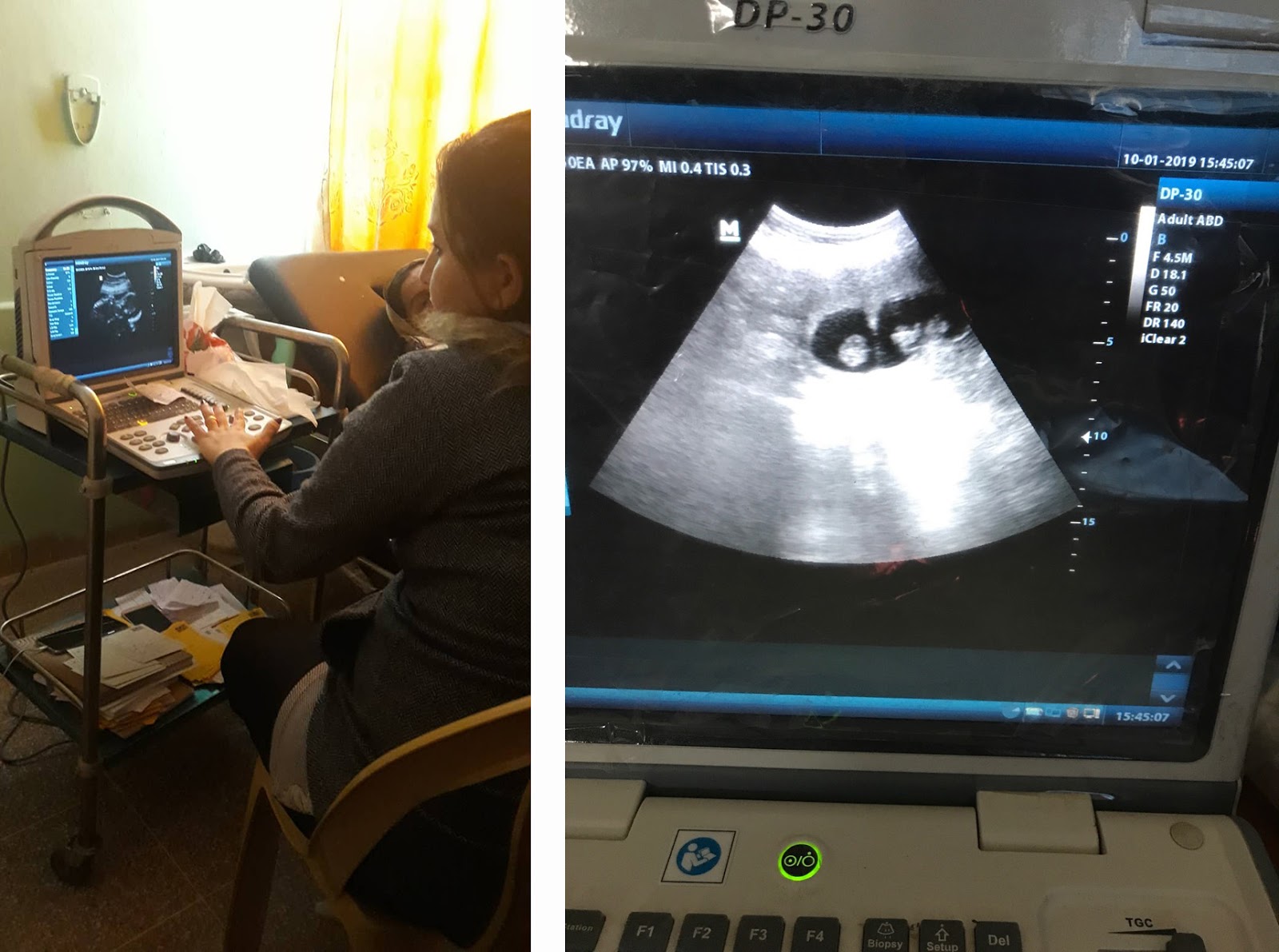
Birthing Care
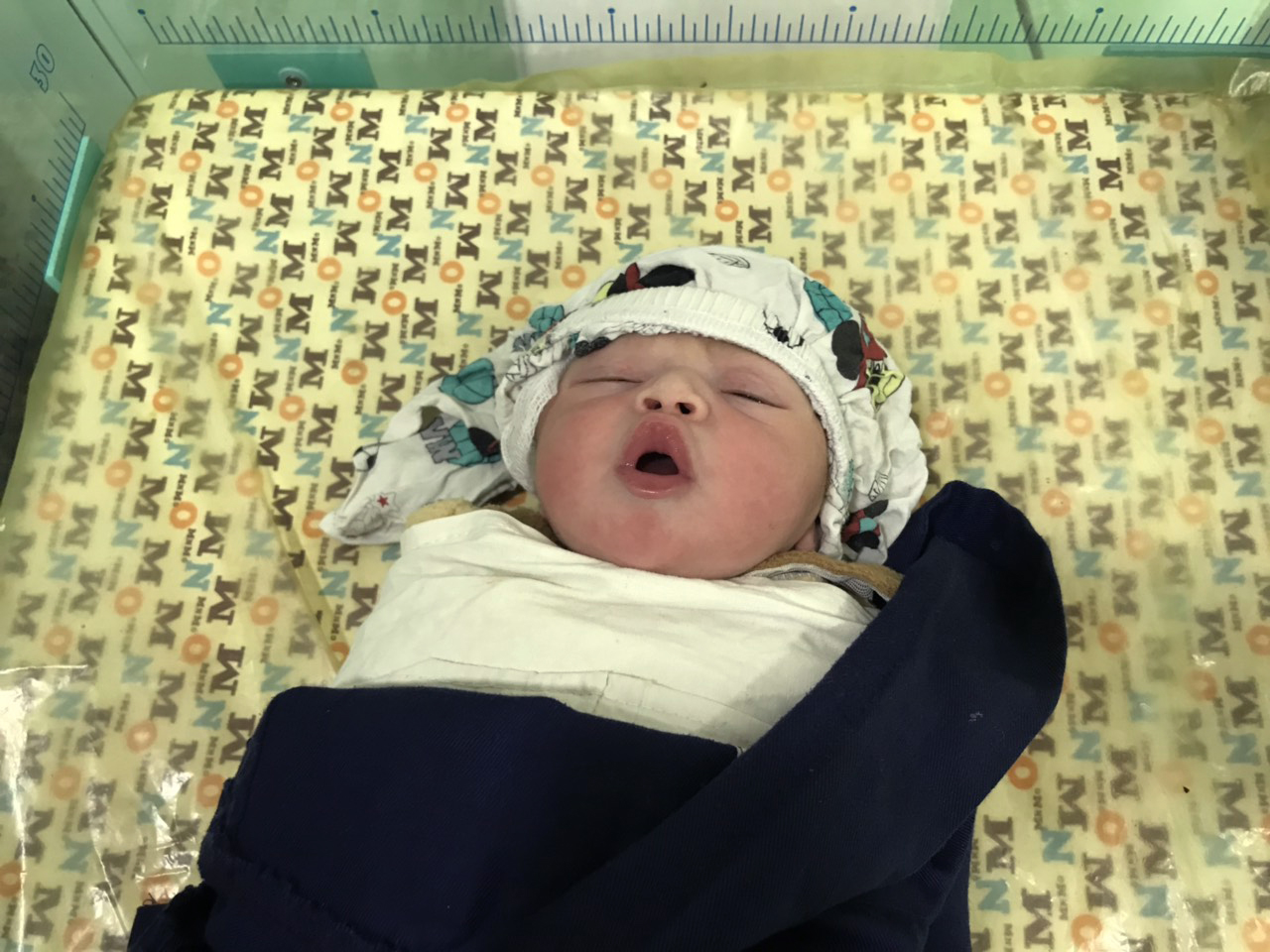
Having a safe, clean place to give birth is essential in a country like Iraq, where basic infections can quickly steal away life. For babies born with jaundice, simple treatments under special lights can make the difference between thriving and struggling.
For moms who have complicated births, access to operating rooms with surgeons ready to perform cesarean sections is essential. Many communities that sustained massive infrastructure damage in war need time to rebuild facilities and healthcare teams. In two hospitals, you can help fund the surgical staff needed to manage emergency deliveries. The lives of moms and babies are saved by these teams every single day.

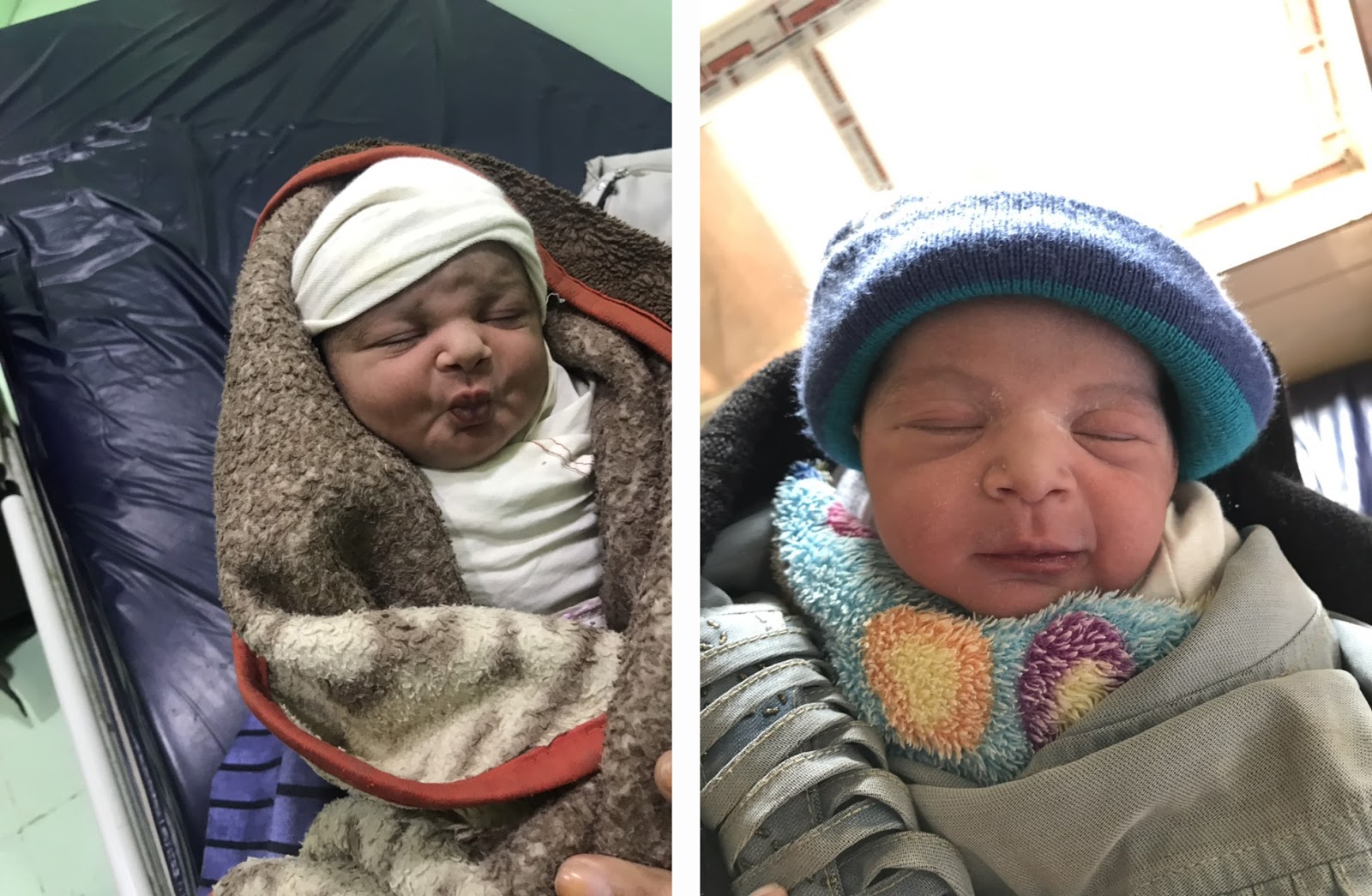
Pediatric Care
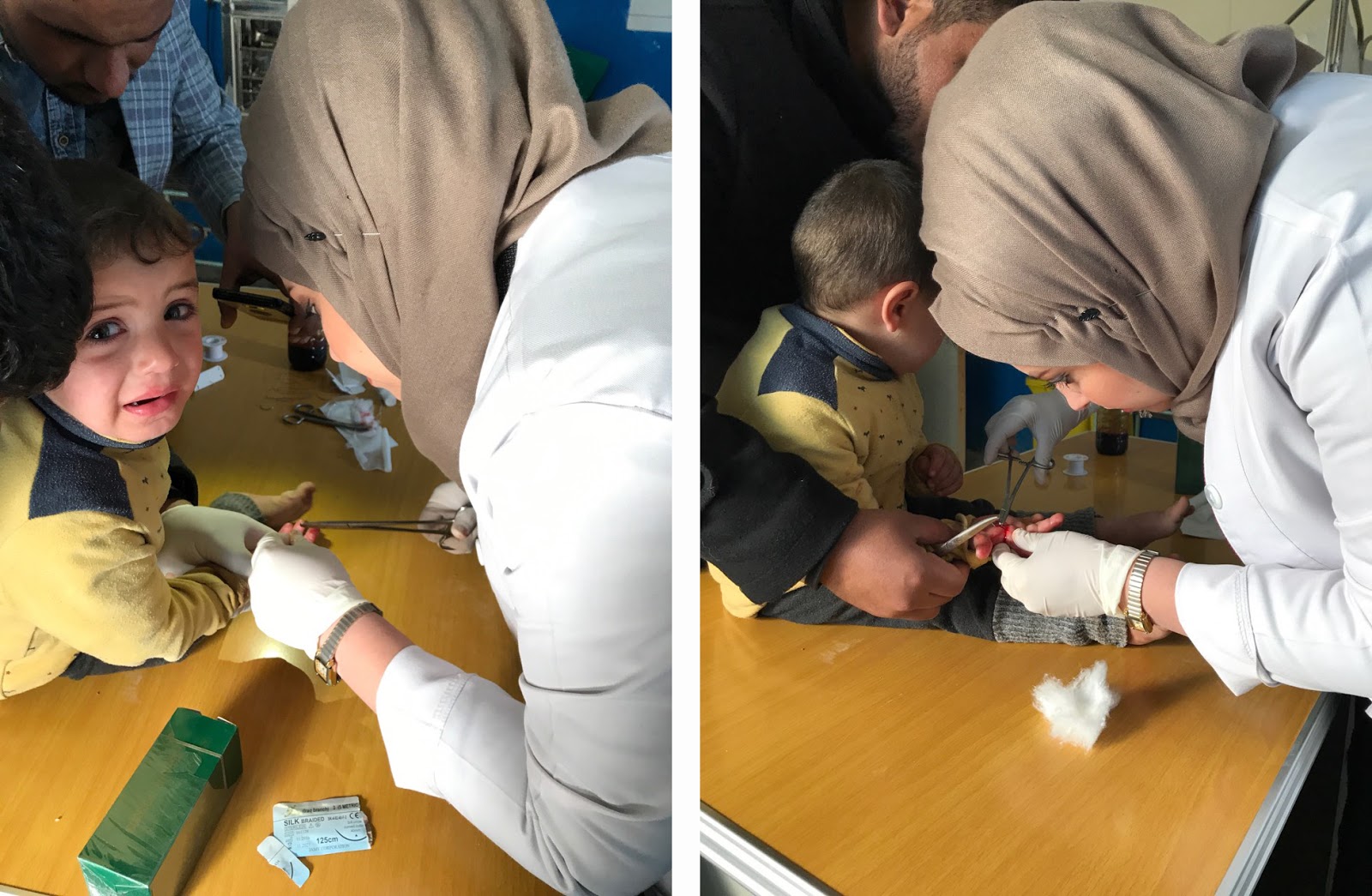
The ability to access health care for children doesn’t stop with birth. Primary healthcare centers in Iraq, and a well-stocked hospitainer in Syria, staffed with doctors and nurses who truly love their communities, are ready to deal with a wide range of issues in children, from diseases like diabetes to scabies.
There’s also care for little boys like Melik, above, quick enough to grab a kitchen knife in the few seconds his parent’s back was turned. Melik gave himself a cut deep enough to require stitches. Without access to doctors who could quickly treat his wound, Melik would have lost a lot of blood and been at serious risk of infection.
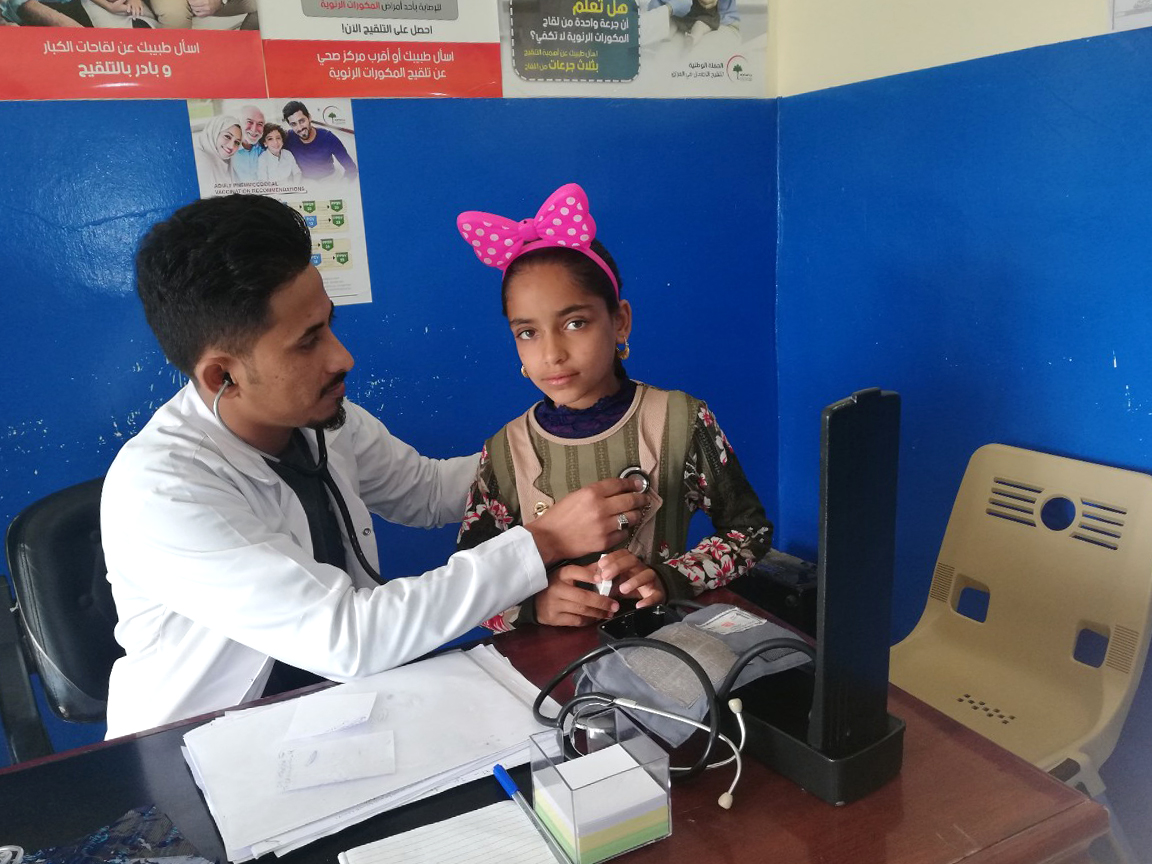
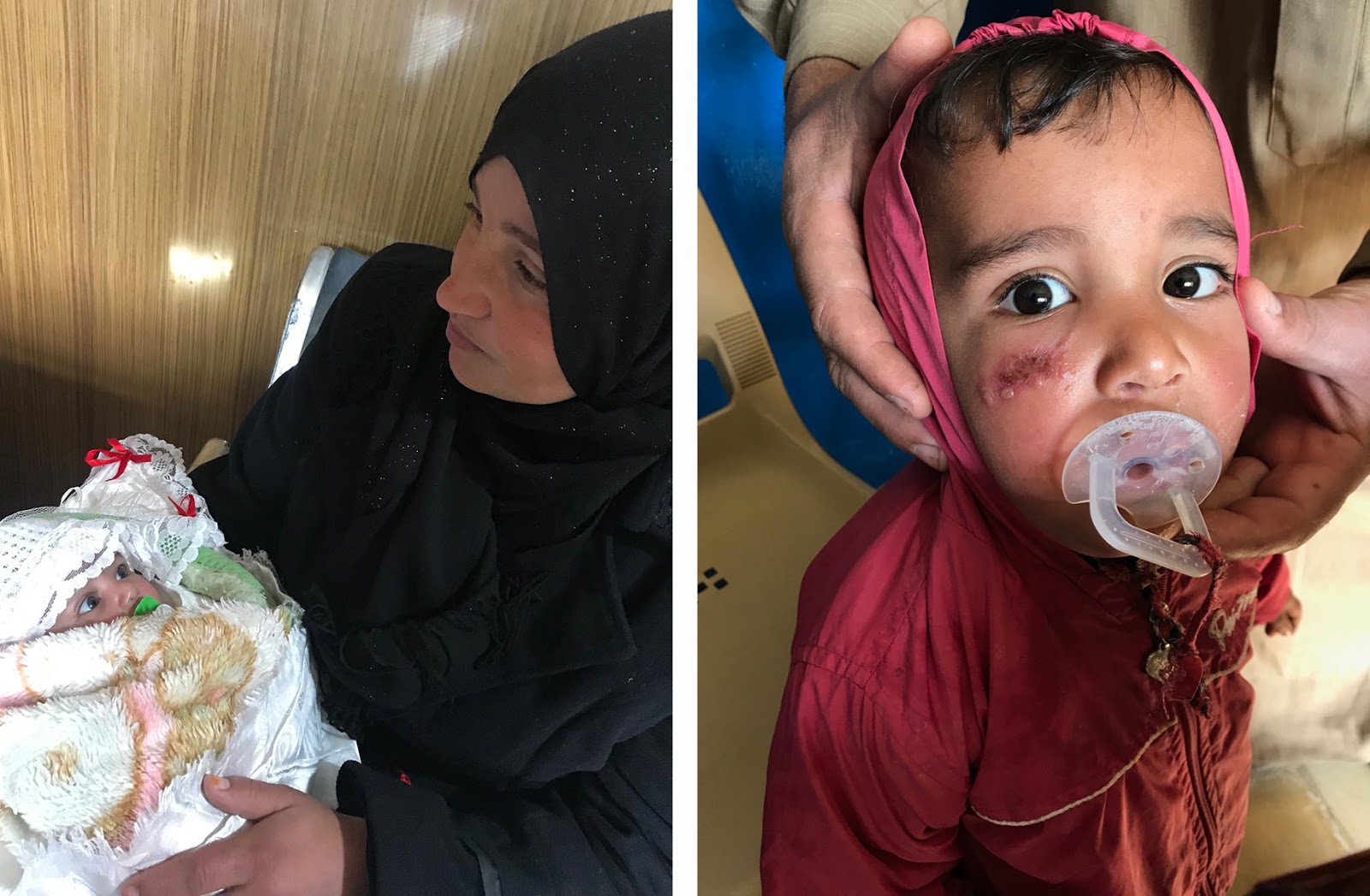
Rebuilding home is complex—and our response needs to match. In some places we provide small business grants for families to start businesses while still displaced—businesses they can take with them when they return to their hometowns. In some places, like Mosul, we help to restart businesses in the old city, as well as training young adults in IT skills, preserving the city’s ancient past while investing in its future.
And in some places, we provide essential bridge funding allowing a variety of primary healthcare centers, mobile clinics, hospitainers, and hospitals to welcome people home, until local governments are ready to take over.
Rebuilding home—you can continue to have a vital role in the lives of these little ones and their families.

